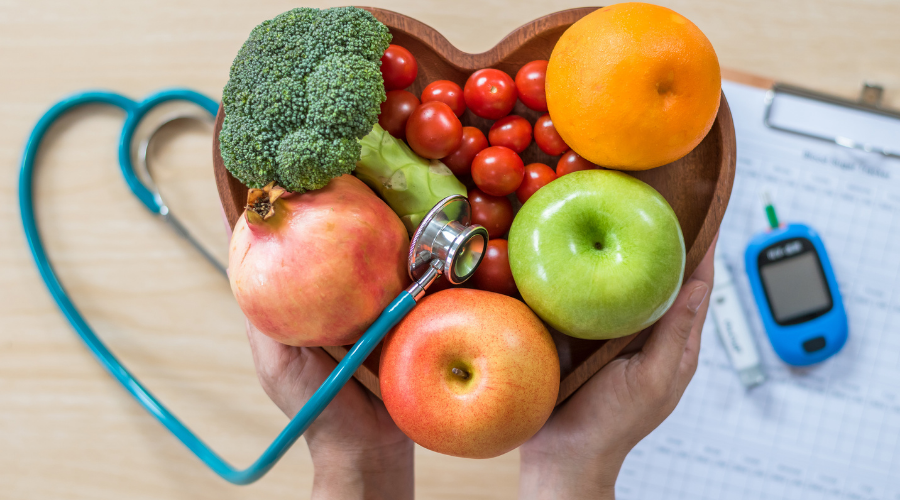Your doctor recently diagnosed you with type 2 Diabetes, now what? This diagnosis is not something you need to be afraid of. However, it is something you should start taking seriously, as the long-term effects of unstable blood sugars can lead to heart disease, vision loss, neuropathy and kidney disease.
Did you know that people have reversed their type 2 Diabetes? Yes… real people, just like you, who were on medications like insulin to manage their blood sugars. They started eating right and exercising regularly and now are in remission from diabetes. They call it remission, because it is a lifelong disease, and if you revert back to your old habits, your body may react to it the same way and your diabetes will come back. So, are you ready to take control over your Diabetes?
What is Type 2 Diabetes
Most often, type 2 diabetes is caused by being overweight and living an inactive lifestyle. According to the CDC over 30 million Americans also have type 2 diabetes. When our bodies are misused for so long, eventually they tire and stop working properly. The body stops being able to produce enough insulin to keep your blood sugars down, or it becomes resistant to the insulin your body is making, therefore unable to bring your blood sugar down. So, what is the big deal if your blood sugar is high?? Uncontrolled blood sugars over time can have life-long debilitating results, such as heart attacks caused by heart disease or daily pain in your legs or feet caused by neuropathy. No one wants to be tortured by daily pain or even worse, end up with an avoidable amputation!
You may wonder, what is actually happening inside of your body when you eat? Is that double cheeseburger value meal meal with a coke really going to cause ALL this to happen to you? The truth? No. Eating just one fast food meal will not cause diabetes. But, one fast food meal a day, or even 2 or 3 times a week, adds up over a span of 30 or 40 years. In America, the most common vegetable that a child consumes is a French fry. I am not kidding! It is then safe to assume that these fast food meals start accumulating at a very early age. There have been numerous studies that link French fries to childhood obesity and type 2 diabetes.
Eating Carbohydrates with Diabetes
There are two major types of carbohydrates (“carbs”), simple and complex. Carbs are the body’s primary source of energy and you need to eat them to survive. It is important to understand carbohydrates and what you are putting into your body to maintain a well-balanced diet. Simple carbs are made up of easy-to-digest, sugars. Whereas, complex carbs contain longer chain molecules, which take your body longer to break down and use.
We often hear the reference of “good carbs” and “bad carbs”. Well, I am here to tell you that it is not that easy to understand because, not all simple carbs are bad carbs. In fact, fruits and vegetables are considered to be simple carbs. They are an essential part of our diet and we must eat them to obtain the vitamins and nutrients our bodies need to function. So, what is the difference between the “good simple carbs” and the “bad simple carbs”? It comes down to sugars. Fruits and vegetables contain basic sugars and are high in fiber. The fiber changes the way our bodies break down that sugar, which slows the digestion process, and makes it act more like a complex carbohydrate. Did I lose you yet? I hope not!
Simple Carbohydrates
The simple carbs you want to avoid will contain added sugars and sweeteners. In 2018, the FDA mandated that all nutrition labels clearly state the amount of added sugars per serving in the products being sold as to force companies to be more transparent about their ingredients. If you are quickly scanning the nutrition label to identify added sugars, look for these words: corn sweetener, corn syrup, fructose, glucose, maltose, malt syrup, trehalose, sucrose, and honey.
What are some foods to avoid that contain simple carbohydrates? Soda and energy drinks are big ones to just say no to. It can be hard to give up that daily 2pm beverage to help pick you up through the rest of the day, (some people have it when they wake up instead of coffee) trust me when I say I understand it sounds impossible, and I hear you. This is a part of your life; it is your routine and how you get through the day. But let me remind you, that you are making a lifestyle change, one without diabetes remember? And , YOU CAN DO IT! Okay, other things to avoid may seem a little more obvious like candy, pastries, cookies (yes, that includes the beloved Oreo) and ice cream. There are things that are not so obvious though, and we might not realize they are taking a toll on our bodies, like sweetened teas and lemonades. If you are someone who cannot stand to drink plain old tap water, try adding fruits or vegetables to your water for added favor, you may be surprised at how sweet it can taste!
Complex Carbohydrates
Let’s talk about complex (aka “good”) carbohydrates. These are made up of a longer strand of sugars, which takes your body longer to break down and process. These will slowly release a smaller amount of sugar over time, instead of a large amount all at once, to keep your blood sugars steady throughout the day.
So, what can you eat? Instead of eating a sandwich for lunch on your normal white bread, you should substitute for a whole-wheat bread. Whole grains such as whole-wheat flour, quinoa, brown rice, barley, corn and oats provide more nutrients for your body than processed grains. Examples of processed grains are: white bread, pasta, baked goods made with white flour. There are many ways to substitute in the whole grain option into your family’s favorite weeknight recipes. Most of the time, they won’t even know the difference!
It is important to get in the habit of reading the ingredient labels when shopping for food so you know exactly what you are putting into your body. If you’re trying to determine whether something is a “good” or “bad” carb, you need to first start by reading the label. Typically, the higher the fiber count and lower the sugars, the healthier the food is for you.
Can I Reverse Type 2 Diabetes?
The short, simple answer is yes! With the right education about nutrition and how to feed your body, along with an exercise routine, you can put diabetes behind you. It will not be easy, as I have stated above, you will have to make some sacrifices. You will have to change your mindset about food, about grocery shopping, about eating in general, but you don’t have to do it alone. Here at Twin Oaks Health, we have helped diabetics just like you, make life altering changes to put this diagnosis in the past. No more expensive medications, no more finger pokes to check your blood sugars, no more fear of the long-term effects that come with this disease.
So, what does all of this mean for you? It does not mean you will never be able to enjoy your grandmother’s famous cookie recipe again. Or that you will be stuck eating salads 3 times a day for the rest of your life. Like many of the best things in life, we can still enjoy those sweet treats, on occasion and of course, in moderation.
It does mean, however, that you will need to make some adjustments and learn new ways to fuel your body with more nutritious options. Once you make this drastic lifestyle change, you will not only notice that you no longer crave the sugary snacks, but that you are now craving the healthier snacks. (sounds crazy doesn’t it?)
Warning, there will be some side effects that go along with drastically changing your diet. You will notice yourself losing weight, even if you aren’t working out regularly. You will find that you have more energy throughout the day, and those mid-day slumps disappear. Your mood may change, as blood sugar dips are known to cause mood-swings, and by fueling your body correctly at the right times of day, you will no longer have those sugar crashes. So, if you are ready to take control over your diabetes, learn more about Twin Oaks Health and get started here.






